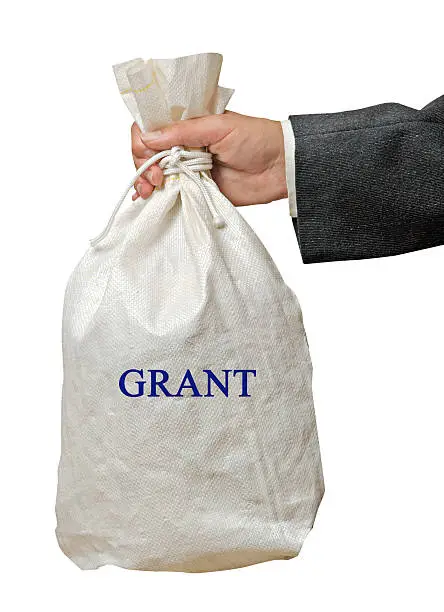Grants for Jewish nonprofits are not merely financial transactions but essential partnerships that contribute to the vitality, resilience, and transformative impact of the Jewish community.
Grants serve as lifelines for Jewish nonprofits, playing a pivotal role in enabling them to fulfill their missions, contribute to community development, and address the unique needs of the Jewish community.
These financial injections empower nonprofits to implement innovative programs, support vulnerable populations, and contribute to the overall well-being of the Jewish people.
This in-depth article delves into the multifaceted importance of grants for Jewish nonprofits, highlighting how these funding mechanisms are instrumental in fostering resilience, continuity, and positive change.
- Empowering Social Initiatives: Grants are instrumental in supporting social initiatives undertaken by Jewish nonprofits. From education and healthcare to cultural enrichment and social services, grants provide the financial resources necessary to initiate and sustain programs that strengthen the fabric of Jewish communities. Whether it’s establishing educational programs for Jewish youth or providing crucial social services to vulnerable populations, grants amplify the impact of nonprofits in addressing societal needs.
- Fostering Jewish Identity and Values: Grants are a vital tool for fostering Jewish identity and values within the community. Organizations that focus on preserving and promoting Jewish heritage, history, and culture often rely on grants to organize events, exhibitions, and educational programs. By securing funding, nonprofits can actively contribute to the continuity of Jewish traditions, ensuring that future generations maintain a strong connection to their cultural and religious roots.
- Holocaust Remembrance and Survivor Support: Grants specifically dedicated to Holocaust remembrance and survivor support are essential for nonprofits committed to preserving the memory of historical atrocities. These funds contribute to educational initiatives, memorial projects, and programs that provide crucial support to Holocaust survivors. Grants in this context not only honor the past but also contribute to healing and resilience within the Jewish community.
- Addressing Unique Community Needs: The Jewish community encompasses diverse needs, and grants provide the flexibility for nonprofits to address these challenges effectively. Whether it’s supporting elderly community members, enhancing healthcare services, or responding to economic disparities, grants enable nonprofits to tailor their efforts to the specific needs of the Jewish population, ensuring a comprehensive and inclusive approach to community development.
- Catalyzing Innovation and Sustainability: Grants are instrumental in fostering innovation within Jewish nonprofits. They provide the financial foundation for organizations to experiment with new ideas, technologies, and approaches to community issues. This support is particularly crucial in an ever-evolving landscape, allowing nonprofits to adapt to changing circumstances, remain relevant, and ensure the sustainability of their impactful initiatives.
- Collaboration and Partnership Opportunities: Grants often come with opportunities for collaboration and partnership. Nonprofits that secure funding gain access to networks, resources, and expertise that can amplify their impact. Building connections within the philanthropic community not only enhances financial support but also opens doors to shared learning, best practices, and collaborative efforts that benefit the broader Jewish community.
A Comprehensive List of Foundations Awarding Grants for Jewish Nonprofits
Securing funding is paramount for Jewish nonprofits looking to fulfill their missions and make a lasting impact on the community. Numerous foundations and philanthropic organizations recognize the importance of supporting Jewish causes, offering a diverse range of grants to address various needs. This comprehensive list serves as a valuable resource for Jewish nonprofits, providing insights into foundations that actively contribute to the growth and sustainability of initiatives within the Jewish community.
- Jewish Communal Fund:
- Focus Areas: Education, Social Services, Cultural Enrichment
- Overview: The Jewish Communal Fund is a leading provider of grants supporting initiatives that contribute to the overall well-being and development of the Jewish community. Its broad focus allows nonprofits to explore funding opportunities for diverse programs aligning with education, social services, and cultural enrichment.
- Genesis Prize Foundation:
- Focus Areas: Jewish Identity and Values
- Overview: The Genesis Prize Foundation is dedicated to funding projects that promote Jewish identity and values. Nonprofits engaged in initiatives that strengthen connections to Jewish heritage, culture, and values may find valuable support from this foundation.
- Claims Conference:
- Focus Areas: Holocaust Remembrance, Survivor Support
- Overview: The Claims Conference actively supports organizations working toward Holocaust remembrance and providing assistance to survivors. Grants from this foundation contribute to educational efforts, memorial projects, and programs that address the unique needs of Holocaust survivors.
- Hadassah Foundation:
- Focus Areas: Social Justice, Gender Equality
- Overview: The Hadassah Foundation focuses on supporting projects that align with social justice and gender equality within the Jewish community. Nonprofits with initiatives addressing these critical issues may find the Hadassah Foundation to be a valuable funding partner.
- Nathan Cummings Foundation:
- Focus Areas: Social Justice, Environmental Justice
- Overview: With a commitment to social justice, the Nathan Cummings Foundation provides grants to nonprofits addressing a wide range of social issues. Organizations within the Jewish community dedicated to promoting positive societal change may find support for their innovative projects.
- Pomegranate Foundation:
- Focus Areas: Arts and Culture, Jewish Heritage
- Overview: The Pomegranate Foundation focuses on supporting initiatives that celebrate Jewish arts, culture, and heritage. Nonprofits engaged in creative and cultural projects may explore opportunities for funding to enrich and preserve Jewish traditions.
- Koret Foundation:
- Focus Areas: Education, Community Development
- Overview: The Koret Foundation is committed to supporting education and community development. Jewish nonprofits with programs contributing to educational initiatives and community building may find the Koret Foundation to be a strategic partner for their endeavors.
- The Covenant Foundation:
- Focus Areas: Jewish Education, Innovation
- Overview: The Covenant Foundation supports initiatives that advance Jewish education and innovation. Nonprofits focusing on educational programs, curriculum development, and innovative approaches to Jewish learning may find valuable resources through this foundation.
- UJA-Federation of New York:
- Focus Areas: Community Building, Social Services
- Overview: UJA-Federation of New York is a significant philanthropic organization providing grants to nonprofits that contribute to community building and social services within the Jewish community. They support a wide range of programs enhancing the well-being of individuals and families.
- Charles and Lynn Schusterman Family Foundation:
- Focus Areas: Leadership Development, Jewish Identity
- Overview: This foundation is dedicated to empowering young Jewish leaders and strengthening Jewish identity. Nonprofits engaged in programs fostering leadership skills and cultivating a strong sense of Jewish identity may find support from this foundation.
- The Ruderman Family Foundation:
- Focus Areas: Inclusion, Disability Rights
- Overview: With a focus on inclusion and disability rights, The Ruderman Family Foundation provides grants to organizations promoting accessibility and equal opportunities for individuals with disabilities within the Jewish community.
- Jewish Women’s Foundation of New York:
- Focus Areas: Gender Equity, Women’s Issues
- Overview: This foundation concentrates on supporting initiatives that address gender equity and women’s issues within the Jewish community. Nonprofits working towards empowering women and advancing gender equality may find valuable support here.
- The Righteous Persons Foundation:
- Focus Areas: Arts and Culture, Social Justice
- Overview: Founded by filmmaker Steven Spielberg, this foundation supports projects at the intersection of arts and culture with a commitment to social justice. Nonprofits utilizing creative expressions to address societal issues may find funding opportunities.
- The Chais Family Foundation:
- Focus Areas: Education, Community Building
- Overview: The Chais Family Foundation supports educational initiatives and community building within the Jewish community. Nonprofits aiming to strengthen educational programs and foster a sense of community may explore grant opportunities.
- Jim Joseph Foundation:
- Focus Areas: Jewish Education, Youth Engagement
- Overview: Dedicated to Jewish education and youth engagement, the Jim Joseph Foundation provides grants to organizations fostering impactful learning experiences for Jewish youth and young adults.
- Jewish Federations of North America:
- Focus Areas: Community Development, Emergency Assistance
- Overview: As a network of Jewish federations, this organization provides grants to support community development and emergency assistance programs. Nonprofits addressing immediate needs and fostering long-term community resilience may benefit.
- Max M. and Marjorie S. Fisher Foundation:
- Focus Areas: Human Services, Arts and Culture
- Overview: This foundation supports initiatives in human services and arts and culture. Nonprofits addressing critical human needs and contributing to the cultural vibrancy of the Jewish community may find potential funding avenues.
- The Morton K. and Jane Blaustein Foundation:
- Focus Areas: Social Justice, Human Rights
- Overview: Committed to social justice and human rights, this foundation provides grants to nonprofits working towards systemic change and advocating for human rights within the Jewish community and beyond.
- William Davidson Foundation:
- Focus Areas: Economic Development, Jewish Life
- Overview: The William Davidson Foundation supports economic development initiatives and projects enhancing Jewish life. Nonprofits contributing to economic empowerment and the vitality of Jewish communities may explore grant opportunities.
- Jewish Family Service Agencies:
- Focus Areas: Social Services, Family Support
- Overview: Many local Jewish Family Service agencies offer grants to nonprofits addressing social services and family support. Collaborating with these agencies can provide targeted support for programs aimed at strengthening families within the Jewish community.
Recommended Books for Enhancing Grant Writing Skills
To further enhance your grant writing skills and stay on top of these trends, consider diving into some insightful literature.
Here are a few recommended books:
- The Ultimate Guide to Federal Grant Applications: Techniques for Success – This book is a must-read for anyone looking to navigate the complex world of federal grant applications. It offers practical techniques, insider tips, and a comprehensive understanding of what it takes to create successful federal grant applications.
- Advanced Grant Writing for Nonprofits : Focuses on sophisticated techniques for experienced grant writers. It delves into complex aspects of proposal development, offering strategies for dealing with competitive grant environments and large funding bodies.
- Mastering Grant Writing: A Nonprofit’s Guide to Effective Proposal Development and Submission: This book serves as a comprehensive guide, covering the entire process of grant writing. It includes tips on understanding funders’ perspectives, crafting compelling narratives, and the nuances of proposal submission.
- Becoming the Grant Guru: Freelancer’s Guide to Success : Tailored for freelance grant writers, this book provides insights into building a successful career in grant writing. It includes strategies for finding clients, managing projects, and maximizing the impact of grant proposals.
- The Small Business’s Guide to Winning Grants : This resource is particularly useful for small businesses looking to secure grants. It offers practical advice on identifying suitable grant opportunities, understanding the requirements of small business grants, and crafting winning proposals.
- Grant Readiness Guide: Preparing to Triumph in Funding Opportunities : A comprehensive resource for organizations at various stages of grant preparedness. It provides a roadmap for developing organizational capacity, aligning projects with funders’ goals, and creating compelling applications.
- Her Capital: Unlocking Women’s Small Business Grants: Specifically designed for women entrepreneurs, this book offers guidance on navigating the landscape of small business grants for women. It includes insights into grant sources, application strategies, and tips for leveraging grants to grow a business.
Unlock Your Grant Success!
Join our email list now for exclusive grant-writing tips and unique grant opportunities delivered straight to your inbox. Click here to Subscribe. Don’t miss out!




